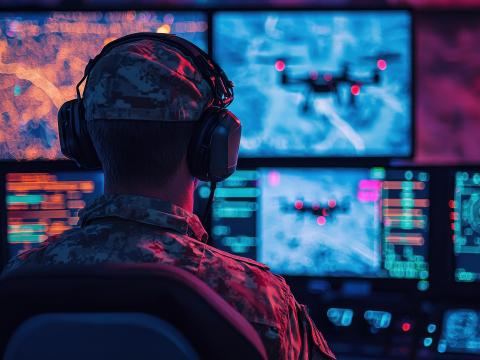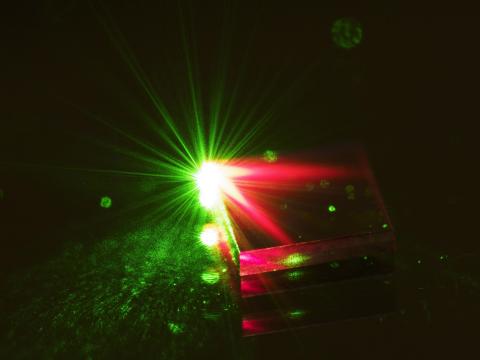Perspecta Awarded Funds for Background Check System
The Defense Security Service (DSS) and Defense Information Systems Agency (DISA) have awarded nearly $75 million to Perspecta Enterprise Solutions LLC of Herndon, Virginia, to help reform and modernize the security clearance personnel vetting processes and develop the National Background Investigation Service (NBIS) information technology system.
The effort is expected to improve timeliness, efficiency, effectiveness and risk mitigation of the security background check process. “The bottom line is we need to get cleared people to work faster. We’re not doing that well today,” Terry Carpenter, NBIS program executive officer, told reporters on a conference call May 21. “Whether you’re in an agency in the federal government or whether you’re an industry partner trying to deliver capabilities to the federal government with cleared personnel, we need to make sure those companies, those agencies, can get those people to work because they have their clearance.”
The award is under a so-called other transaction authority (OTA), which is designed to attract small, innovative businesses to rapidly develop prototypical systems. The award will further build on the architectural foundations of NBIS to create a scalable Security Enterprise Architecture and Data Services prototype that enables data reuse and analytic capabilities across multiple missions while strengthening system security and providing enhanced user and customer experience, according to a DISA press release.
Patricia Stokes, director, Defense Vetting Service, DSS, explained during the conference call with reporters that currently employees and contractors must go through the vetting process every five or 10 years, but that will no longer be necessary with the new system because the data on cleared persons will be continually updated. “We are looking to leverage technology to get into a more continuous evaluation model versus the current model, which is periodic reinvestigation.”
Technology focus areas include data ingest, brokering, and analytics capability enabled by artificial intelligence capabilities, such as machine learning and natural language processing, as well as enterprise-level software factory capabilities to consistently and quickly develop, test, secure and deploy additional vetting capabilities using DevSecOps automation with continuous authority to operate processes in a secure government cloud environment, according to the press release.
Carpenter explained to reporters how he measures success for NBIS. “For me, success is about making sure we bring in innovative technology that we don’t typically see in the department and [are] able to build a scalable, enterprise-class application that operates in the cloud effectively and allows us to continue in an agile development way to adjust with the changing requirements—because there are still some policy changes coming. We can adjust and keep the integrity and the effectiveness of the application going forward.”
The new architecture will help DSS transform multiple vetting mission areas such as background investigations, adjudications, continuous vetting and related insider threat programs, all mandated through existing presidential orders or legislation. The architecture will enable DSS to process and organize the data currently authorized for each mission area more rapidly, and highlight the items that are most likely to inform a human decision based on today’s laws, rules, regulations and guidelines, according to the press release. The new class of decision support tools are being constructed to help make more informed decisions in significantly less time.
Last year, Enterprise LLC, Herndon, Virginia, received a prototypical technology OTA related to the investigation management portion of NBIS. The Perspecta award is specifically for the security enterprise architecture and the data services. The new OTA funding is for two years. Assuming all goes well, Perspecta will receive additional funding to move into the production phase.





Comments